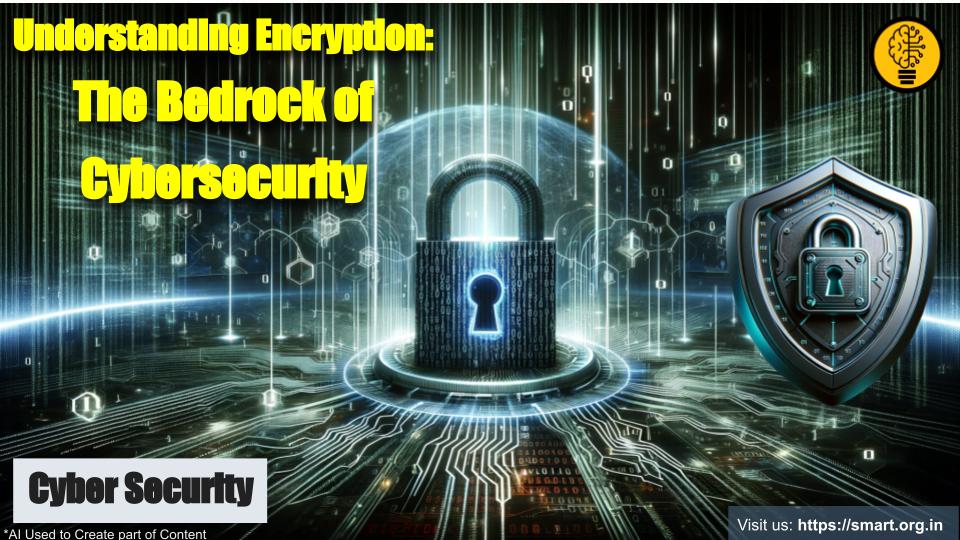In the digital era, the significance of data protection cannot be overstated. Cybersecurity measures are essential to safeguard sensitive information from unauthorized access. Encryption stands as a pivotal technology in this defence. This blog will delve into the basics of Encryption and explore its critical role in ensuring the privacy and security of data.
What is Encryption?
Encryption is a process that transforms readable data, known as plaintext, into a coded form called ciphertext. This alteration makes the information unintelligible to anyone who does not have the decryption key, a secret code used to revert the data back to its original form. Its roots are deeply embedded in the fields of mathematics and computer science, drawing on complex algorithms to secure data.
Key Components of Encryption
- Plaintext: The original, readable data that needs protection.
- Ciphertext: Encoded data produced through encryption.
- Encryption Algorithm: The method used to transform plaintext into ciphertext.
- Keys: Secret codes that are used in the encryption and decryption processes.
Types of Encryption
Encryption methodologies can be broadly categorized into two types: symmetric and asymmetric encryption.
Symmetric Encryption
- Single Key Usage: Both the sender and the receiver use the same key for encryption and decryption.
- Speed: Generally faster than asymmetric encryption, making it suitable for encrypting large volumes of data.
Asymmetric Encryption
- Two-Key System: Utilizes a public key for encryption and a private key for decryption.
- Enhanced Security: The separation of keys allows for safer communication over insecure channels.
The Importance of Encryption in Data Protection
Encryption serves as the first line of defense in protecting data across various digital platforms, from online transactions to confidential communications.
Protecting Data Integrity
- Confidentiality: Ensures that sensitive information remains accessible only to authorized parties.
- Data Integrity: Guarantees that the data has not been altered during storage or transmission.
Compliance with Regulations
- Legal Requirements: Many industries are governed by regulations that mandate the protection of consumer data, such as GDPR in Europe and HIPAA in the healthcare sector in the United States.
- Trust and Credibility: Businesses that adhere to these regulations bolster their reputation and build trust among consumers.
Real-World Applications of Encryption
Encryption is ubiquitous in everyday technologies, highlighting its integral role in securing digital communications and transactions.
- Secure Communications: Applications like WhatsApp and Signal use end-to-end encryption to protect users’ messages.
- Online Transactions: Encryption protects sensitive information such as credit card numbers during online purchases.
- Data Storage: Encrypted hard drives and cloud services ensure data remains secure, even if physical devices are lost or stolen.
Challenges and Considerations in Encryption
Despite its robustness, encryption is not without challenges. The increasing sophistication of cyber attacks means that encryption technologies must continuously evolve.
Potential Issues
- Key Management: Securely managing and storing keys is critical to prevent unauthorized access.
- Computational Overhead: Encryption can introduce latency, especially in systems that require real-time processing.
Future Outlook
- Quantum Computing: The rise of quantum computing poses new challenges to current encryption methods, necessitating the development of quantum-resistant encryption algorithms.
From my early days at Karnataka University, drawing on the precision and rigor required in mechanical field. I recognized the importance of meticulous detail and robust security measures. Encryption, in this context, represents more than just a technological tool; it is a fundamental aspect of trust in our increasingly digital world. Understanding and implementing strong encryption practices is not merely a technical necessity but a foundational component of modern data protection strategies. By prioritizing encryption, organizations can protect their data assets and ensure the confidentiality and integrity of their digital interactions.
Smart Group India is a leading provider in the cybersecurity space, dedicated to helping companies fortify their digital infrastructure against cyber threats. They offer a comprehensive suite of security solutions that safeguard critical data assets and ensure business continuity. With their expertise in cutting-edge security technologies, Smart Group India empowers organizations to protect themselves from evolving cyber risks efficiently.


In conclusion, we at Smart Group hope this article has provided you with valuable insights and actionable strategies. Smart Group India Incubation provides a nurturing environment for startups, offering comprehensive support and resources to foster growth and innovation. With access to expert mentorship, state-of-the-art infrastructure, and networking opportunities, startups can thrive in their journey from ideation to market launch. Explore our services in DevOps consultancy, IoT solutions, and cybersecurity to leverage cutting-edge technology for your business success. Join us to embark on a transformative journey towards entrepreneurial excellence. For further information and a deeper dive into this topic, we encourage you to explore the following resources. These links offer a wealth of knowledge and expert opinions that can enhance your understanding and assist you in applying these concepts effectively.
Startup Policies Govt. Of India
Startup News Sites
Publications
Research Papers